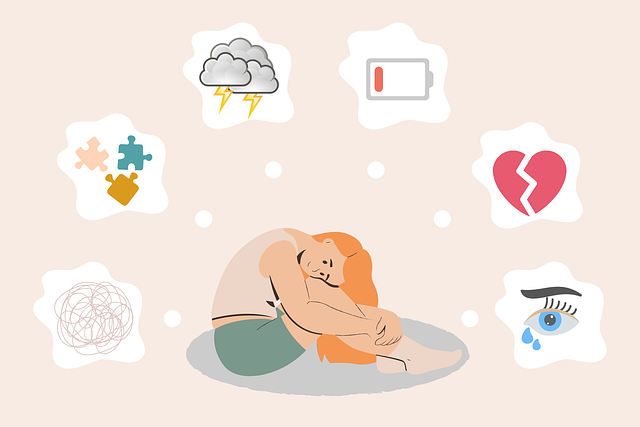Introduction
Bipolar disorder is a serious mental health condition that affects millions of people worldwide. It is marked by dramatic shifts in mood, energy, and activity levels, ranging from extreme highs (mania or hypomania) to deep lows (depression). For those struggling with these changes, seeking professional support is essential—and that often begins with finding the right psychiatrist for bipolar disorder.

This article explains what a psychiatrist does for bipolar disorder, how to find the right specialist, and what to expect from treatment.
What Does a Psychiatrist Do for Bipolar Disorder?
A psychiatrist is a medical doctor who specializes in diagnosing, treating, and managing mental health conditions. For bipolar disorder, their role is crucial.
Key Responsibilities Include:
- Diagnosis: Assessing symptoms, medical history, and behavior patterns.
- Medication Management: Prescribing mood stabilizers, antidepressants, or antipsychotics when necessary.
- Monitoring Progress: Adjusting treatment plans based on effectiveness and side effects.
- Comprehensive Care: Coordinating with therapists and other healthcare providers.
Unlike general practitioners, psychiatrists have specialized training in complex mood disorders, making them best equipped to guide long-term care.
Psychiatrist vs. Psychologist for Bipolar Disorder
Many people wonder about the difference between a psychiatrist and a psychologist. While both play important roles, their approaches differ:
- Psychiatrist: A medical doctor who can prescribe medication and manage medical treatment.
- Psychologist: Focuses on therapy and counseling but cannot prescribe medication (in most regions).
For bipolar disorder, psychiatrists often work alongside psychologists, combining medication with therapy for the best results.
Signs You Should See a Psychiatrist
Not everyone with mood swings needs psychiatric care, but certain signs suggest it’s time to consult a specialist.
Common Indicators Include:
- Intense mood swings that disrupt daily life.
- Sleep disturbances—sleeping too little or too much.
- Engaging in risky or impulsive behavior.
- Difficulty concentrating or functioning at work or school.
- Feelings of hopelessness or thoughts of self-harm.
If these symptoms are persistent and overwhelming, a psychiatrist’s expertise can make a major difference.
How to Choose the Right Psychiatrist for Bipolar Disorder
Finding the right psychiatrist is an important step. Here are some factors to consider:

- Credentials: Ensure they are board-certified in psychiatry.
- Experience: Look for psychiatrists who specialize in mood disorders or bipolar disorder.
- Treatment Philosophy: Some may emphasize medication, while others focus on a balanced approach with therapy.
- Accessibility: Consider whether you prefer in-person sessions or telepsychiatry (online appointments).
- Comfort Level: Trust and communication are vital for long-term care.
Making an informed choice can significantly improve treatment outcomes.
What to Expect in Your First Appointment
Your first visit with a psychiatrist may feel intimidating, but understanding the process helps ease anxiety.
Typically, the First Session Includes:
- A discussion of your symptoms and medical history.
- Questions about your mood patterns, behavior, and lifestyle.
- Possible psychological assessments.
- A conversation about treatment options and goals.
You may not leave with a prescription immediately—psychiatrists often take time to gather enough information before beginning medication.
Treatment Options for Bipolar Disorder
A psychiatrist may recommend different approaches depending on the type and severity of bipolar disorder.
Common Treatments Include:
- Mood Stabilizers: Help regulate extreme highs and lows.
- Antidepressants or Antipsychotics: Used when depression or mania is severe.
- Therapy Referrals: Psychiatrists may recommend Cognitive Behavioral Therapy (CBT), psychoeducation, or family therapy.
- Lifestyle Guidance: Suggestions for sleep hygiene, stress management, and healthy routines.
Treatment is highly personalized, and regular follow-ups are necessary to track progress.
Tips for Working Effectively With Your Psychiatrist
A successful partnership with your psychiatrist depends on open communication and commitment.
Helpful Strategies:
- Keep a Mood Journal: Track sleep, emotions, and behaviors to share during appointments.
- Be Honest: Discuss side effects or challenges with medications openly.
- Set Realistic Goals: Focus on gradual improvement rather than overnight results.
- Stay Consistent: Attend appointments regularly and follow treatment recommendations.
The more involved you are in your care, the better your long-term outcomes.
Frequently Asked Questions
1. Can a psychiatrist cure bipolar disorder?
Bipolar disorder is not curable, but it is highly manageable with the right treatment. Psychiatrists help patients lead balanced and fulfilling lives.
2. How long does treatment for bipolar disorder take?
Treatment is typically lifelong, though symptoms can be effectively controlled with medication and therapy.
3. Do all patients with bipolar disorder need medication?
Not always. Treatment depends on the severity and type of bipolar disorder, but medication is often a core part of management.
4. Can I see a psychiatrist online for bipolar disorder?
Yes, telepsychiatry has become increasingly common, making mental health care more accessible.
Conclusion
Living with bipolar disorder can feel overwhelming, but the right psychiatrist can make a transformative difference. From diagnosis to ongoing management, a psychiatrist provides the tools and support needed to stabilize mood swings and improve quality of life.
If you or someone you know is struggling with symptoms of bipolar disorder, reaching out to a qualified psychiatrist is one of the most important steps you can take toward recovery. With proper treatment, many individuals go on to lead balanced, fulfilling lives.



